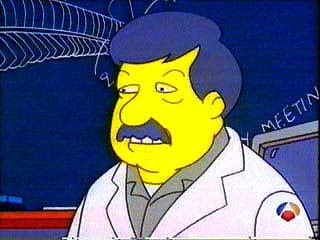Escrever faz bem?

Os tempos de sobrevida em pacientes com câncer segue uma distribuição exponencial (cada tipo de câncer tendo seu tempo médio de sobrevida). Isso significa que, se o tempo médio é 5 anos, não quer dizer que você vai viver isso e pode com alguma probabilidade ter uma sobrevida de 20 anos ou mais.
Stephen Jay Gould conta que quando soube que estava com câncer, examinou essa distribuição exponencial de sobrevidas e "decidiu" que ficaria nos 2% superiores da curva de distribuição. Acho que efetivamente ele conseguiu isso. Será que o fato de escrever tanto (e tão bem!) o ajudou nessa empreitada?
Via Twitter do Vitor Pamplona:
The Oncologist, Vol. 13, No. 2, 196-204, February 2008; doi:10.1634/theoncologist.2007-0147
© 2008 AlphaMed Press
Implementing an Expressive Writing Study in a Cancer Clinic
Lombardi Comprehensive Cancer Center, Georgetown University and Georgetown University Hospital, Washington, DC, USA
Key Words. Expressive writing • Cancer clinic • Emotional disclosure • Feasibility • Leukemia • Lymphoma
Correspondence: Nancy Morgan, M.A., Arts and Humanities Program, Lombardi Comprehensive Cancer Center, 3800 Reservoir Road NW, Georgetown University, Washington, DC 20007, USA. Telephone: 202-444-7228; Fax: 202-444-7889; e-mail: npm2@georgetown.edu
Received August 13, 2007; accepted for publication December 18, 2007.
Comentários